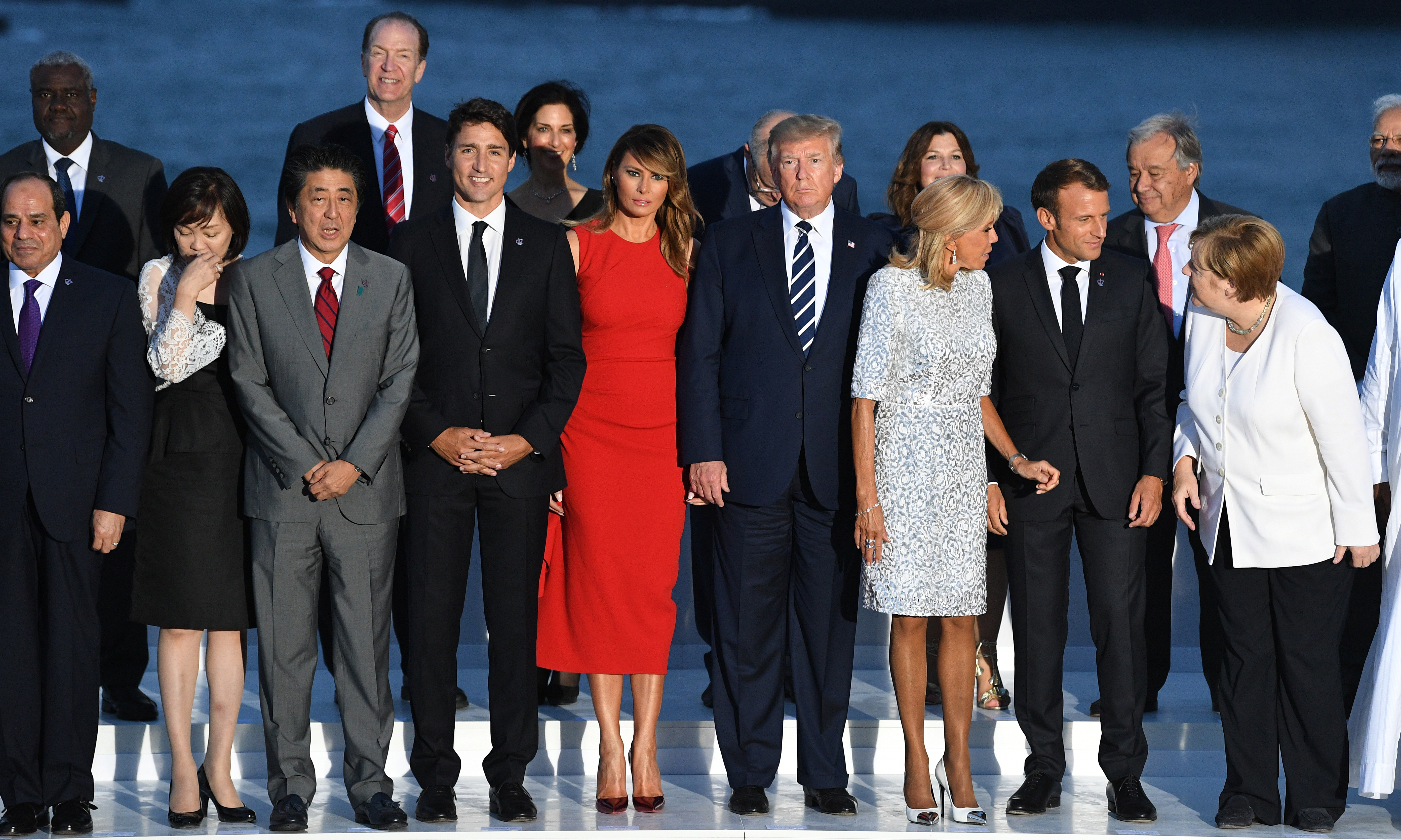Donald Trump is a bad friend
At the G7 summit, the president increasingly goes it alone


A free daily email with the biggest news stories of the day – and the best features from TheWeek.com
You are now subscribed
Your newsletter sign-up was successful
Somebody should tell Nikki Haley — and probably her old boss — that friendship is a two-way street.
Haley, formerly America's ambassador to the United Nations under President Trump, shared her thoughts on friendship with the world Sunday after news broke that Iran's foreign minister, Mohammad Javad Zarif arrived in Biarritz, France, for a surprise visit to the Group of Seven summit. Zarif's visit came at the invitation of French President Emmanuel Macron.
That, Haley decided, was "disrespectful" to Trump.
The Week
Escape your echo chamber. Get the facts behind the news, plus analysis from multiple perspectives.

Sign up for The Week's Free Newsletters
From our morning news briefing to a weekly Good News Newsletter, get the best of The Week delivered directly to your inbox.
From our morning news briefing to a weekly Good News Newsletter, get the best of The Week delivered directly to your inbox.
"Not what friends do." That's a rich criticism, considering that Trump has spent much of his presidency trashing traditional American alliances — just last week he canceled a summit with Denmark's leader in a fit of pique, remember — and the G7 summit, in particular, has previously served as a platform for the president's gleeful disrespect of the existing world order: The 2018 edition, after all, ended with the president taking shots on Twitter at Canadian Prime Minister Justin Trudeau.
Those aren't the kinds of things friends do, but President Trump does them constantly.
France, in particular, has seen its foreign policy priorities completely disregarded by Trump. He has pulled the United States out of the Paris Agreement that provided an international framework to combat climate change. And Trump likewise pulled the United States out of the nuclear deal with Iran, even though Iran was complying with that deal — and even though other countries that were part of the deal, including France, wanted to see it continue.
What we saw at the G7 this weekend were the first signs that if the United States under Trump continues to go its own way, regardless of what its friends and allies think, those friends and allies might be ready to give up, and let the U.S. do exactly that. Macron's invitation to Zarif was perhaps the most significant indication of that development.
A free daily email with the biggest news stories of the day – and the best features from TheWeek.com
Another indication? A very quiet plea from U.K. Prime Minister Boris Johnson for Trump to bring an end to his trade wars that are creating so much havoc and uncertainty for the world economy.
"Look, I just want to say I congratulate the president on everything that the American economy is achieving. It's fantastic to see that," Johnson said. "But just to register the faint, sheeplike note of our view on the trade war, we're in favor of trade peace on the whole, and dialing it down if we can."
Johnson, of course, is practically Trump's alter ego among world leaders. Such a generously phrased rebuke was, in the end, still a rebuke. If Trump has lost Johnson's backing in the Great Trade War of 2019, who is left to give support?
Here is the problem with having a raging narcissist lead the country: Trump insists on conducting policy according to "America first" priorities to advance the country's self-interest, yet seems surprised and aggrieved when other countries act in similar fashion.
Last week, the president seemed genuinely shocked — and angered — by China's decision to retaliate against his trade war by imposing tariffs of its own on American products. "China should not have put new Tariffs on 75 BILLION DOLLARS of United States product (politically motivated!)," he tweeted, as though China was somehow playing unfairly by not surrendering.
Similarly, it's natural for Macron and France to work to preserve the nuclear deal with Iran; they never wanted to scuttle it in the first place. Macron is probably mistaken to believe he can bring Trump back into the old deal — like NAFTA before it, some cosmetic changes, at least, would be required for the president's approval — but he's not wrong to vigorously pursue his country's interest in peace with Iran, even if the United States is going down another path entirely. That's not disrespectful to the United States. That's just good statesmanship.
As long as Trump disregards allies and disrupts long-established relationships, there will probably be more acts of independence from old friends. If Haley's comments are any indication, it's Trump's expectation that he can free the U.S. from the constraints of world leadership while still constraining other countries.
He will find out that won't work. The U.S. keeps doing what friends don't do — which, as any teenager could tell you, is a surefire way to lose friends. America can't ignore the needs and interests of its old allies and still expect them to follow its lead on the world stage. Trump the man doesn't have real friends. Under his leadership, neither will the United States.
Joel Mathis is a writer with 30 years of newspaper and online journalism experience. His work also regularly appears in National Geographic and The Kansas City Star. His awards include best online commentary at the Online News Association and (twice) at the City and Regional Magazine Association.
